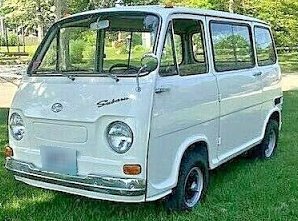Hellooo Everyone! 
I am a Newbie in the process of finding the right 1st Vanlife Home for me, and have some questions to run by you.
A bit about me might help: I am a 46 yr old woman from the Washington State / Seattle area. Lots of things have brought me to the point of deciding Vanlife might be perfect for me, as I am sure is the case for all of you…I am SO EXCITED to start this new chapter of adventure in my life’s Journey. Right now it looks like it will be just me and my dog, but maybe a friend and their dog might join as well. I posted a Newbie Intro in the Newbie Corner for more on me…
Important Disclosures: I have 0 mechanical/automotive experience or skills beyond changing the fluids, oil change, change a tire, and putting on various types of chains. BUT I’m a pretty creative problem solver with an analytical mind when it comes to other stuffs. I am also dealing with a LOW VEHICLE BUDGET for this first year, looking to buy outright, but I do have a stable regular monthly income for the road, and at the end of my 1st or 2nd year I might have more capital to upgrade to a newer vehicle or make more major purchases/repairs/buildouts.
Here’s whats currently on my list of maybe’s, all but 1 have been Vanlife Homes previously:
~2006 E-350 Super Duty Extended High Top 2WD Van: build out basically done, everything I think I would need/want, amazing inside-love it, BUT 250,000miles …Automatic…Gas?
~2004 Chevy Express 2500 Extended 2WD Van: build out basically done, everything I would need, would change/add a few things mostly cosmetic, BUT 271.000miles…Automatic …Gas?
~2006 Ford E250 2WD Van: seems it needs some build out–toilet/shower options, sink/plumbing, BUT 177,000miles…Automatic …Gas?
~1990 Coachman E250 class B Van: Built out at its ORIGINAL, needs adds and upgrades, totally outdated, not so pretty, oxidized paint & outdated interiors, has toilet / needs shower options, but baseline totally functional and ready to GO! And Only 89,000 Original miles. Automatic, Gas. Not built for everyday living or Vanlife, at its Factory.
~1990 Coachman G30 350 Extended High Top Van : Built out at its ORIGINAL but with some upgrades compared to the other Coachman–like full shower/toilet, still in great shape, clean and beautiful…BUT 186,000miles. Automatic, Gas.
~1982 Ford E-150 High Top Conversion Van: Built out beautifully, exquisite wood work, absolutely love it and room for continued adds/adjustments to make it mine, needs toilet/shower options but other than that I think everything I would need. Built for Vanlife. Ready to GO! 57,000 ORIGINAL miles on it! BUT an E-150?
OKAY SO:
- Tell me your thoughts on these?
- Whats TOO MUCH mileage?
- How much value should I place on mileage when making a decision if the maintenance has been good and regular?
- Whats the disadvantages/advantages of having a 1/2 ton vs 3/4 ton vs 1 ton out on the road in this life? How much value should I put on this in a final decision making?
- How much value should I place on the age, extent, materials of the current buildout when making a decision compared to other factors–given my current level of understanding and skills?
Anything Else?
A Ton of thanks ahead of time 
Anastazia

